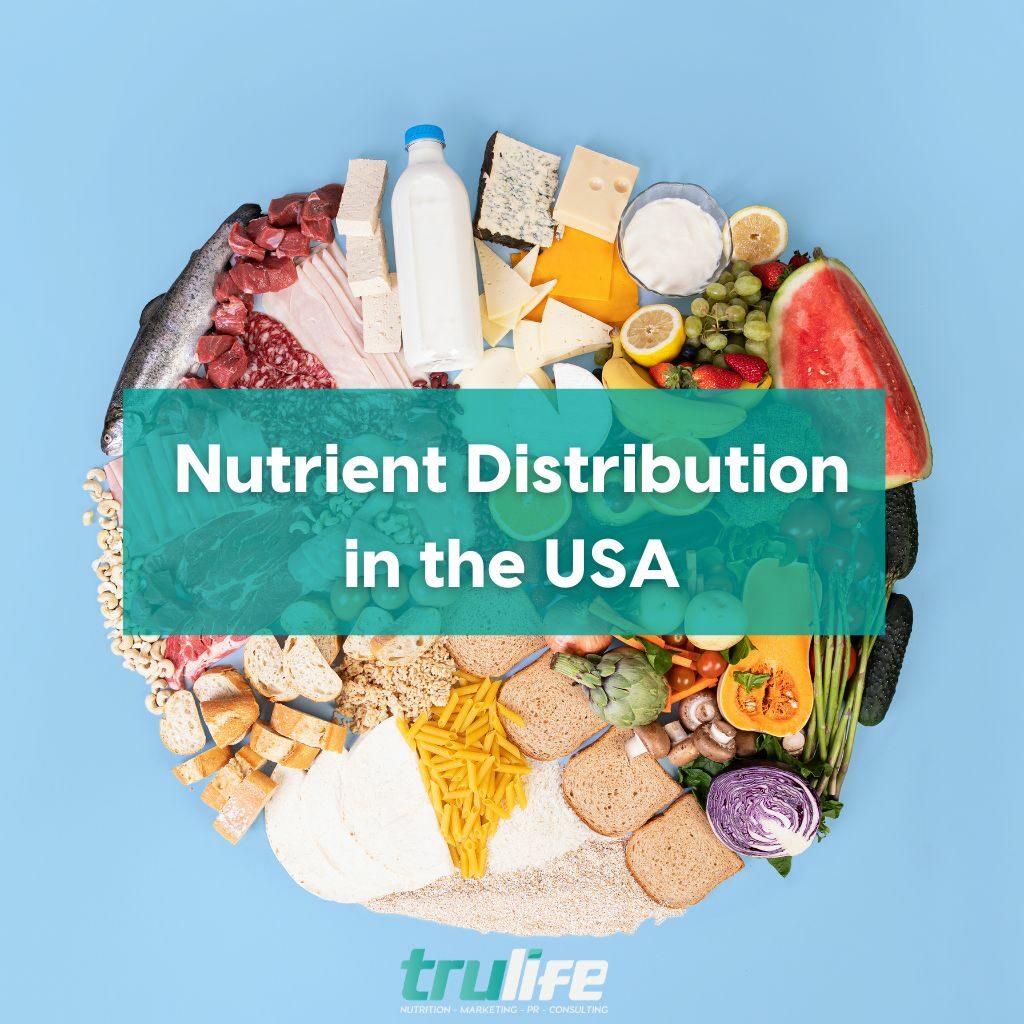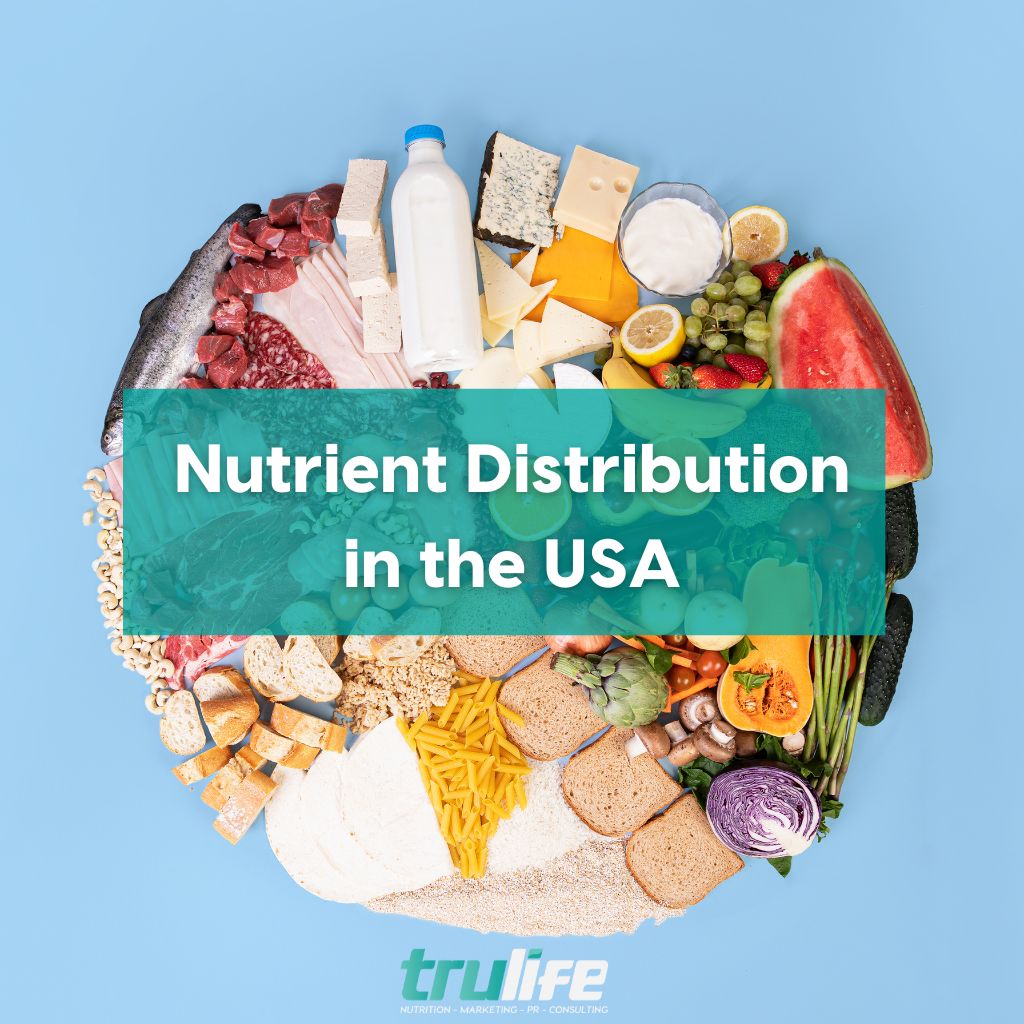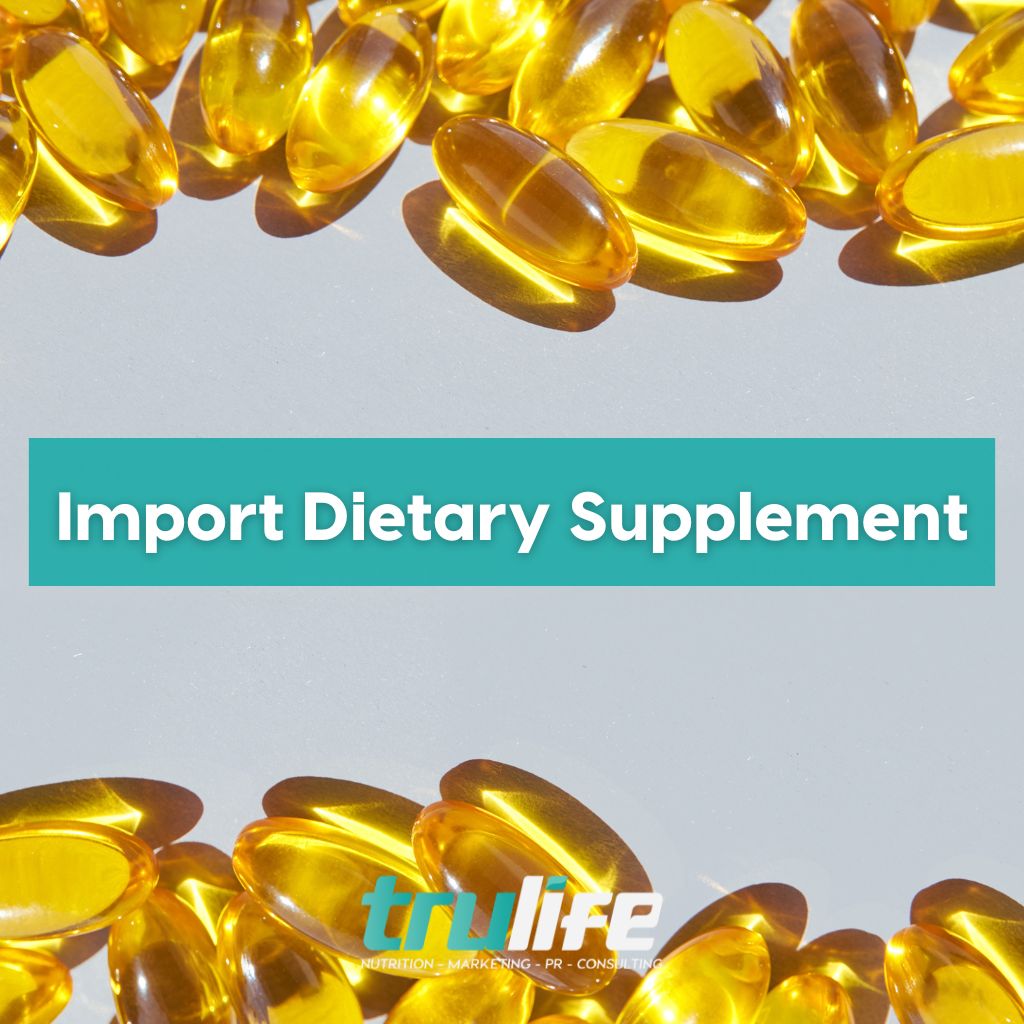Stop scrolling, because we at TruLife Distribution want to be your trusted partner when it comes to your nutrition distribution. We have gathered some information about nutrient distribution in the USA so that you don’t have to.

Nutrient Distribution and Deficiency in the USA
Nutrient deficiency is an often overlooked problem in the United States. Despite the fact that Americans enjoy a plentiful diet, many are still suffering from inadequate nutrition. Deficiencies of essential vitamins and minerals can lead to long-term physical and mental health problems, yet they remain neglected in our society.
The most prominent nutrient deficiency in the US is vitamin D. This vitamin is important for bone health as well as immune system functioning. Vitamin D deficiency has been linked to diseases such as osteoporosis and rickets, both of which are major concerns for healthcare providers. The prevalence of vitamin D deficiency among adults in the US is estimated to be around 40%.
While certain populations are more at risk for this particular deficiency than others, most Americans simply do not get enough vitamin D from their diet alone. In addition to being found in small amounts in certain foods, such as salmon and eggs, vitamin D is also synthesized when skin is exposed to sunlight. Unfortunately, many people spend too much time indoors or use sunscreen regularly, limiting their exposure to this essential compound.
Even those who consume fortified products may be at risk of inadequate nutrition due to the unequal distribution of resources across the country. In some areas, access to healthy food can be quite limited due to poverty or a lack of transportation options. This means that people living in these areas often have difficulty obtaining sufficient amounts of essential vitamins and minerals through their diet alone. This can put them at higher risk for various nutrient-related diseases and other health complications throughout life.
Why Do Americans Want Nutritional Supplements?
Nutrition is an essential part of a healthy lifestyle, and nutritional supplements can play an important role in helping to meet nutritional needs. The nutritional supplement market in the United States is a multi-billion dollar industry that continues to grow each year. According to the latest data from the Nutrition Business Journal, nutritional supplement sales were estimated at $42.7 billion in 2019 and are expected to reach over $48 billion by 2024.
This growth is attributed to several factors, such as an increasing focus on health and wellness among consumers, advances in nutritional science that led to more effective nutritional supplements, and an aging population that often requires additional nutritional support. Additionally, the rise of e-commerce platforms has made it easier for consumers to access nutritional supplements online with just a few clicks.
Which Types of Nutritional Supplements are Popular?
When it comes to nutritional supplement products, vitamins, and minerals are by far the most popular product type, accounting for nearly half of all US supplement sales in 2019. Other common types of nutritional supplements include protein powders, fish oil/omega-3 supplements, probiotics, herbal remedies/botanicals, sports nutrition products, performance nutrition products (such as energy drinks/bars), digestive health supplements (such as fiber and probiotics), weight management products (such as meal replacements and energy bars), joint health products (such as glucosamine), plant-based proteins (such as pea protein powder), functional foods (such as fortified milk), omega-3 fatty acids (such as fish oils), and many others.
In addition to these traditional categories of nutritional supplements that are widely available today, manufacturers are increasingly entering new areas of nutrition, such as age- or life-stage-specific formulations or targeted therapies such as brain health or gut health formulations. These emerging trends indicate that the US nutritional supplement market will continue to evolve rapidly over time.
Opportunities for Nutritional Supplement Companies in the USA
The nutritional supplement market also provides immense opportunities for manufacturers who are looking to innovate their products and services or launch new lines or brands tailored specifically towards this growing segment of Americans who seek out nutrition information and specialty nutrition goods while shopping online. Innovative companies may capitalize on this burgeoning market by offering web stores where customers can easily find specialized nutrition information or purchase customized nutrient packages tailored specifically to their needs based on body size, age, or other parameters. As Americans become more educated about their own individual needs for optimal nutrition, it is likely that more sophisticated companies will emerge providing advanced solutions tailored towards these needs.
Supplement Regulations for the Nutrient Distribution in the USA
To guarantee the sound utilization of nutritional supplements in America, regardless of age group, manufacturers must rigorously abide by specific regulations set forth. These include cGMPs as stipulated by FDA, DSHEA – Dietary Supplement Health & Education Act mandated by Congress and NDI’s – New Dietary Ingredients notifications ordered from the FDA. Quality ingredients are of paramount importance before any product is released in the US. Stringent standards set by regulating bodies such as the FDA and NSF International must be followed. Regular testing at certified labs guarantees your products meet these high-quality expectations. Ultimately, offering appropriate education and information about usage instructions and possible side effects will empower people to make informed decisions while buying any nutritional supplement product, either online or offline. In this way, all consumers of varying ages and demographics can guarantee their safety as well as the efficacy of the product when using it.
In conclusion, the US nutritional supplement market presents tremendous opportunities for both manufacturers interested in innovating their product offerings and retailers looking to offer comprehensive solutions designed around customers’ individual dietary needs while understanding the underlying regulatory requirements ensuring the utmost safety and efficacy of any given product sold into US markets. With overall awareness levels improving on how various forms of nutrition support lifestyle-related ailments combined with increasing sophistication among Americans regarding individualized dietary requirements, it is only going further to spur interest among manufacturers, distributors, retailers, and eventually end-user customers seeking personalized nutritional solutions catering to their unique everyday needs.
Improving Nutrient Distribution in the USA?
Ultimately, improving nutrition must involve a multifaceted approach that addresses deficiencies on both an individual and population level. Education about proper nutrition should be widely available so that everyone has access to accurate information about what types of food will help them reach optimal health. Additionally, policies need to ensure an equitable distribution of resources between different regions so that all people have access to healthy food options regardless of their location or economic status. Only with concerted efforts from both individuals and institutions can we hope to make progress against the “silent epidemic” of nutrient deficiency and achieve adequate nutrient distribution in the USA today.








